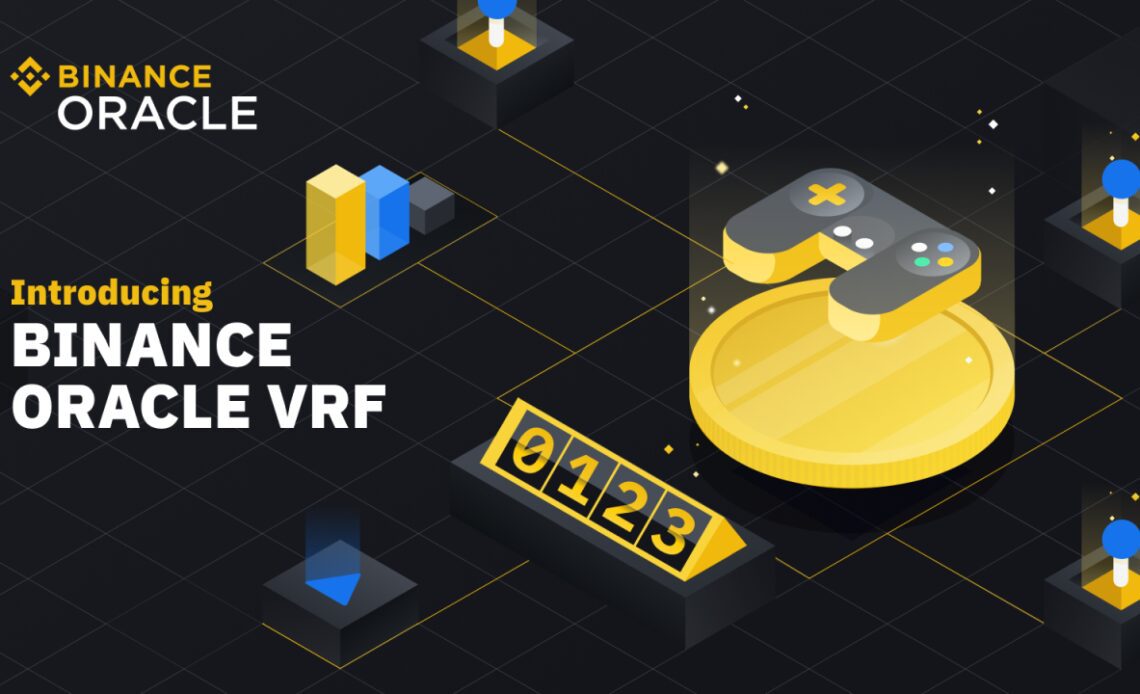sponsored
Main Takeaways
- Binance Oracle VRF is a Verifiable Random Function (VRF) solution that enables blockchain developers to generate random numbers.
- Binance Oracle VRF can be used for an extensive selection of use cases, including GameFi projects and other blockchain products built with smart contracts.
- Keep reading to learn more about how VRFs work, why blockchain applications need randomness, and how Binance Oracle VRF could benefit your project or business.
Powered by Binance Cloud and based on the latest Verifiable Random Function (VRF) standard, here’s everything you need to know about Binance Oracle VRF.
What Is a Verifiable Random Function (VRF)?
Verifiable Random Functions (VRF) are random number generators (RNG) whose outputs can be cryptographically proven as random. Here’s a quick summary of how it works.
- A series of inputs are passed into a VRF.
- The VRF computes the inputs and generates pseudorandom outputs.
- Anyone, at any time, can cryptographically verify that the output is random.
- All proof is published and verified on-chain before applications can use the output.
Why Do Blockchains Need Random Numbers?
There are various scenarios where blockchain applications require randomness. A few examples include:
- Building a blockchain-based game.
- Allocating tasks and resources.
- Picking samples for a consensus mechanism.
To illustrate, let’s examine how randomness can help a GameFi developer build a blockchain-based poker game.
The developer must convince its users that the poker game uses a fair and unbiased algorithm. For example, the deck of cards is shuffled randomly, and no party, including the developer, can manipulate the game.
Rather than using a black box algorithm that hides the game’s inner workings from its users, blockchain developers can effectively prove randomness by showing how their numbers are generated through a trustworthy oracle provider. This way, users can be sure that their game is fair and unbiased.
The Challenge of Generating Randomness
When generating randomness, a good output must fulfill four criteria: unbiased, unpredictable, verifiable, and instantly available.
Many blockchain developers find it challenging to produce on-chain randomness in their applications due to the deterministic nature of the blockchain. The on-chain generated randomness usually can’t satisfy the unpredictability.
On the other hand, purely relying on a simple off-chain oracle provider could force developers to…
Click Here to Read the Full Original Article at Bitcoin News…
























